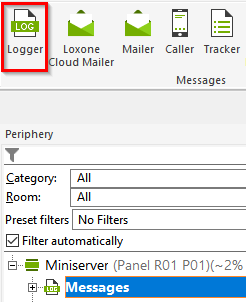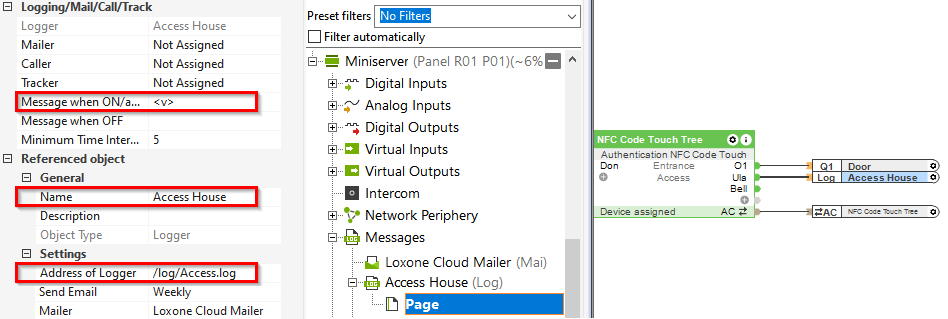The logger writes events to a log file.
Log data is stored on the SD card of the Miniserver by default, alternatively it can be transferred to a syslog or UDP server.
Any number of log files can be created.
Table of Contents
Properties↑
| Summary | Description | Default Value |
|---|---|---|
| Address of Logger | Logger address (empty = default logging data, /log/def.log, /dev/syslog/192.168.1.1, /dev/udp/192.168.1.1/1234) | - |
Programming example↑
First, a new logger is created under Messages:

In the following example we give the logger the name "Access House" and drag the object onto the programming page.
In the properties window, a text can be defined for the two states of digital values or at analog value changes, or values of analog or text outputs can be written to the log file with <v>.
In the logger address, we specify the log file to be written to. In our example, a separate log file with the name "Access" is generated.
If this field is left empty, it will be written to the default log def.log.
In the following example, the text of the output "Ula" is written to the log file.
The data is stored on the SD card and can be retrieved from the Miniserver via the FTP (ftp://User:Password@IPMiniserver/log/) or via the webservice command [IPMiniserver]/dev/fsget/log/LogfileName.log.


Assign logger, mailer, caller, tracker in the properties window↑
Alternatively, in the properties window of various blocks, logger, mailer, caller and tracker can be assigned.
For this, the respective message must only be created and the recipient defined.
The text or value defined in the block is output.

